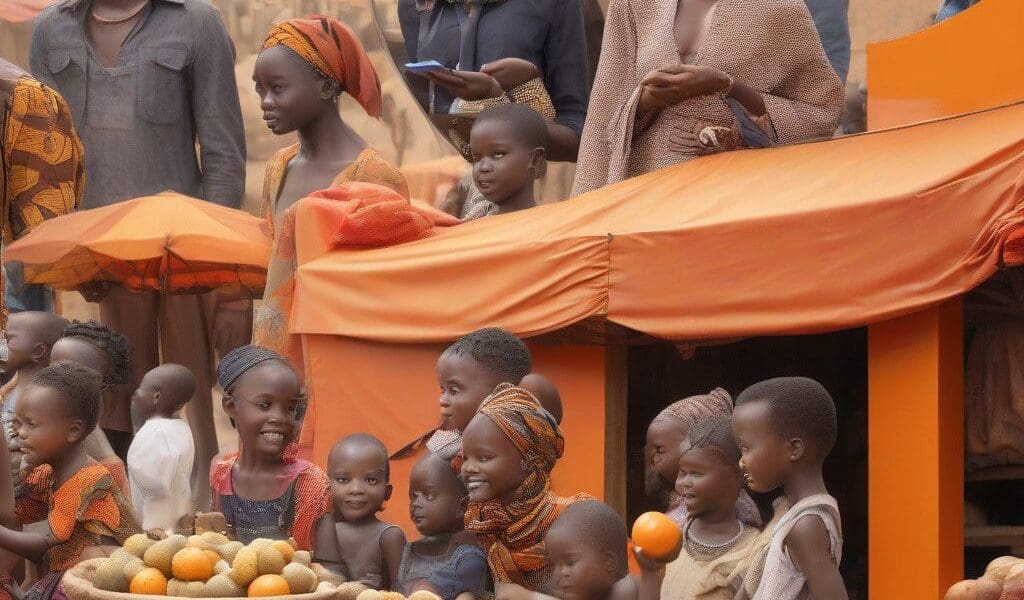Orange and Mastercard Collaborate to Advance Financial Inclusion in Africa
The need for financial inclusion in Africa is critical, especially considering that only 48% of the adult population has access to banking services. Addressing this gap, Orange Middle East and Africa has forged a strategic partnership with Mastercard that aims to enhance mobile financial services across Sub-Saharan Africa. This collaboration will directly impact seven countries: Cameroon, Central African Republic, Guinea-Bissau, Liberia, Mali, Senegal, and Sierra Leone.
One of the key features of this partnership is the introduction of virtual and physical debit cards for Orange Money customers. These cards, linked to their digital wallets, will enable users to conduct seamless transactions with local merchants and on online platforms that accept Mastercard. This addition is poised to simplify financial transactions for millions, particularly in regions where traditional banking channels are limited or nonexistent.
With over 160 million customers, and 37 million active Orange Money accounts, Orange is uniquely positioned to drive this initiative. The partnership signals Mastercard’s dedication to enhancing financial inclusion through innovative technology. By leveraging Orange’s existing infrastructure and customer base, this collaboration promises to extend access to financial tools for underserved populations.
The impact of this innovation resonates beyond mere transaction capabilities. It represents a significant step towards unlocking the potential of digital financial services across the continent. As both companies combine their strengths, they not only provide essential financial solutions but also encourage economic independence and innovation in Africa.
Financial inclusion is about more than just access; it’s about enabling individuals to engage more effectively in economic activities. The introduction of these financial tools empowers individuals by providing them the ability to make purchases, save, and participate actively in the economy. According to the World Bank, financial inclusion can have far-reaching effects, including reducing poverty, fostering entrepreneurship, and enhancing overall economic growth.
Moreover, this partnership aligns with broader socio-economic objectives in Africa. By providing the necessary digital infrastructure and financial tools, Orange and Mastercard can help facilitate job creation and enhance livelihood opportunities for millions.
In practical terms, this collaboration could see an increase in small and medium-sized enterprises (SMEs) being integrated into the formal economy. As these businesses can accept digital payments, they gain access to wider customer bases and improved cash flow management, ultimately leading to increased revenue.
The strategic alliance also highlights the importance of public and private partnerships in tackling economic challenges. As governments and development organizations increasingly recognize the role of digital finance in achieving sustainable development goals, initiatives like those from Orange and Mastercard serve as exemplary models of how tools can be developed and deployed to respond to local needs effectively.
Real-life examples already demonstrate the power of mobile financial services in transforming economies. In Kenya, for instance, the advent of mobile money through M-Pesa revolutionized financial access for many, enabling over 30% of the country’s GDP to circulate through the platform. The success of such models can inspire more innovations tailored to different contexts across Africa.
Furthermore, financial education and awareness will play crucial roles in the success of this initiative. As users gain access to financial services, it becomes imperative that they also understand how to effectively manage their finances, utilize digital tools, and leverage their new capabilities. Combined efforts from Orange and Mastercard in client education can ensure that users are not only equipped with the tools, but also the knowledge to use them wisely.
In conclusion, the alliance between Orange and Mastercard represents a pivotal movement towards greater financial inclusion in Africa. By enhancing access to digital financial services and empowering underserved communities, they position themselves as not only service providers but also as catalysts of socio-economic change. As this venture unfolds, it will be interesting to observe how these efforts translate into tangible benefits for millions across the continent.
Financial inclusion is not just a matter of access; it’s about participation and prosperity in an increasingly digital economy.








